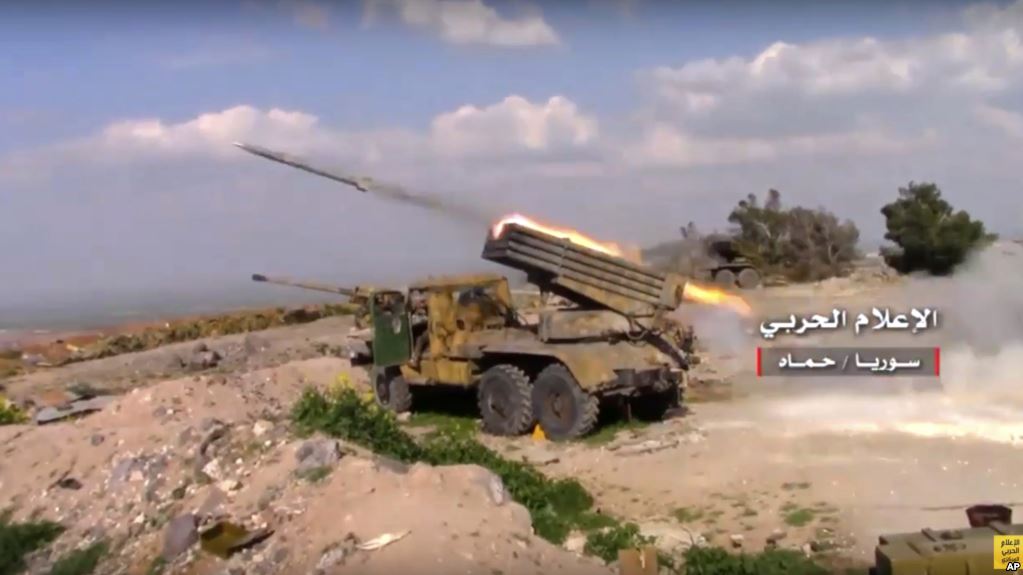Beirut, Damascus – The Syrian opposition warned that the battle of the countryside of northern Hama during which Syrian regime forces advanced and controlled the town of Halfaya on Sunday, could further pave the way for the regime to move towards Idlib, especially after emptying the two towns of Foua and Kafraya, previously considered as a pressure paper in the hands of the opposition.
The Syrian Observatory for Human Rights said regime forces and their Syrian and non-Syrian allies were capable of fully recapturing the town of Halfaya, in addition to Tallat al-Nasiriya, the farms of Sen Sahar and al-Wibda, the Btish village and al-Tarabih checkpoint following violent clashes with opposition factions and Hay’at Tahrir al-Sham.
Director of the Observatory Rami Abdel Rahman told Asharq Al-Awsat: “The regime aims to completely liberate the countryside of northern Hama to later advance towards Khan Sheikhoun in the countryside of southern Idlib, and then expand to other areas in Idlib. It seems that their tactic is going as planned.”
For his part, opposition member Colonel Fateh Hassoun told Asharq Al-Awsat: “At the military level, the attack on Idlib started with the attack on Khan Sheikhoun. What is happening today is a Russian and Iranian operation to entirely burn and destroy the infrastructure and human presence” in those areas.
Hassoun said he expected that the latest events in Syria would escalate the confrontations and counterattacks of the military faction in accordance with the field developments.
Meanwhile, during a meeting of the Baath party chaired by its Secretary General Bashar Assad, five of the 15-member leadership were replaced.
The Baath party’s website quoted Assad as saying during the meeting that the “most important goal of the war on Syria was undermining pan-Arab ideals and forcing Syria to abandon pan-Arabism,” asserting that Syria belonged to the Arab nation.
By his comments, Assad clearly contradicted the fact that he chose to ally with Iran and Russia during the six years of war in Syria, therefore hitting the Arab annexes of Syria.
